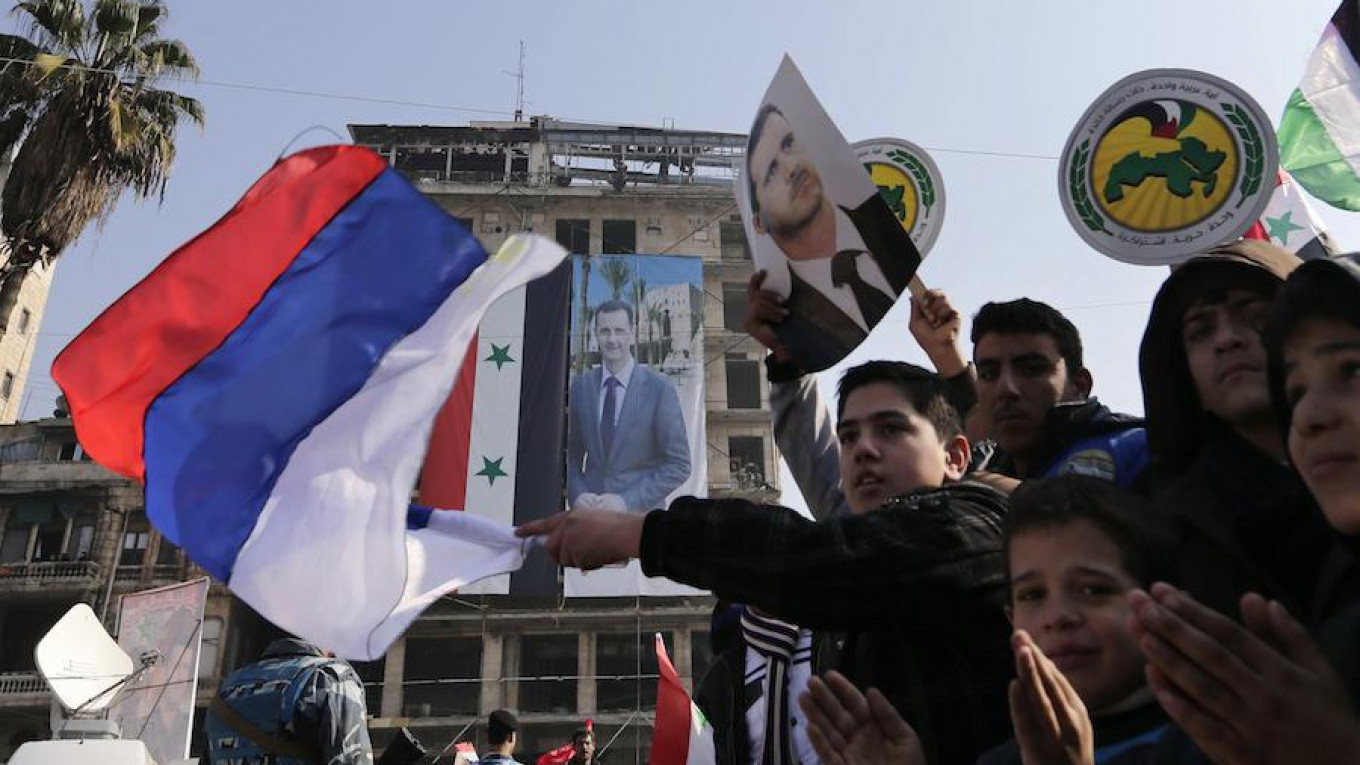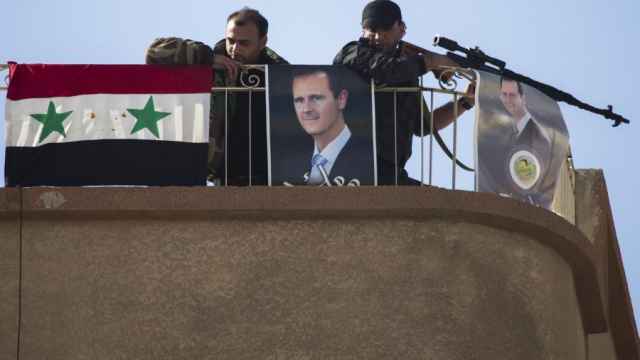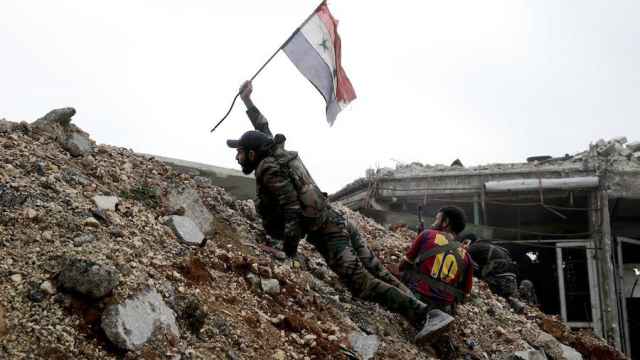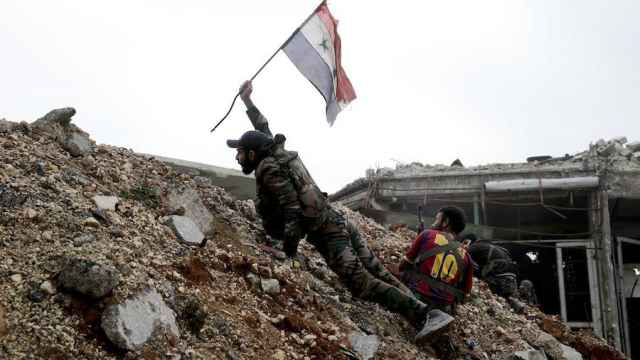If Russia’s state television channel Rossiya 1 was to be believed, the fate of Syria depended on this week’s talks in Astana.
In comments at the start of negotiations, however, the head of the Russian delegation, Alexander Lavrentyev, advised caution. After nearly six years of conflict in Syria, he told reporters Russia did not expect “simple solutions.” It was enough, he said, to bring “the warring sides closer together.”
In a very literal sense, the Astana talks did exactly that. For the first time, Syrian rebel fighters themselves, not just their representatives, sat across from officials of Bashar Assad’s government. Previously, Moscow denied that a moderate armed opposition even existed in Syria — every group was labeled terrorist.
Predictably enough, day one of the talks ended with the Syrian parties hurling accusations at each other. The rebels described Assad’s regime as “bloody” and “despotic,” while the regime cast those fighting it as “terrorists.” When the summit concluded on Jan. 24, the two sides were still only engaging indirectly and no new agreement was signed.
And yet, for the Kremlin, Astana is a victory. The Kazakh capital provided the perfect setting to show off Moscow’s new political alliance with regional powers. In this alliance, Russia is playing the first fiddle.
Together, the new allies have tried to prove their ability to broker a durable cease-fire between warring factions. They aim to prove that they are more effective, at least, than the United States and the United Nations. In late December, Ankara and Moscow announced a ceasefire agreement which, though tarnished by violations, has refueled hopes of progress.
Ahead of yet another round of Geneva talks slated for Feb. 8, Astana was meant to cement Russia’s position as an inescapable powerbroker in the conflict, while increasingly sidelining the United States. Other than in the form of U.S. Ambassador to Kazakhstan George Krol, acting in an observer role, the world superpower was notably absent from the talks.
“It was a public declaration on who holds the cards in Syria — more important for who it excluded than the actual content of the discussion,” says Michael Kofman, from the Center for Naval Analyses.
Unlike the impression given by some Russian media, Astana has not sealed Syria’s fate. But it has underlined who the power brokers are and set the tone for future negotiations.
Now, after securing Assad position in power, the challenge for Moscow now is to find viable levers of control over the Syrian regime and its Iranian backers, says political analyst Vladimir Frolov: “While Iran is betting on maintaining leverage in Syria through its militias, Russia is seeking to recreate a strong Syrian state with a monopoly over armed force, with the regime and the opposition sharing power.”
The map of new Syria has not yet been drawn. But the Astana plan tells us what the Russians think is a realistic outcome. According to Joseph Bahout, a visiting scholar at the Carnegie Middle East Program, such an outcome would rejects the notion of a “unified, democratic Syria.” Instead, the region’s future would lie with “the consolidation of existing statelets” and “zones of influence,” determined through local truces and reconciliations.
According to such a vision, Assad will likely remain in the picture for some time to come. Russia’s hand in shaping events in Syria and the Middle East will be as strong as ever.
Update: Syria's opposition representatives have refused to consider the Russian delegation's draft constitution proposal, Kommersant reports. While they did not give any specific objections to the document's provisions, several opposition representatives said that the new constitution was unacceptable because it was "written in another country."
A Message from The Moscow Times:
Dear readers,
We are facing unprecedented challenges. Russia's Prosecutor General's Office has designated The Moscow Times as an "undesirable" organization, criminalizing our work and putting our staff at risk of prosecution. This follows our earlier unjust labeling as a "foreign agent."
These actions are direct attempts to silence independent journalism in Russia. The authorities claim our work "discredits the decisions of the Russian leadership." We see things differently: we strive to provide accurate, unbiased reporting on Russia.
We, the journalists of The Moscow Times, refuse to be silenced. But to continue our work, we need your help.
Your support, no matter how small, makes a world of difference. If you can, please support us monthly starting from just $2. It's quick to set up, and every contribution makes a significant impact.
By supporting The Moscow Times, you're defending open, independent journalism in the face of repression. Thank you for standing with us.
Remind me later.






